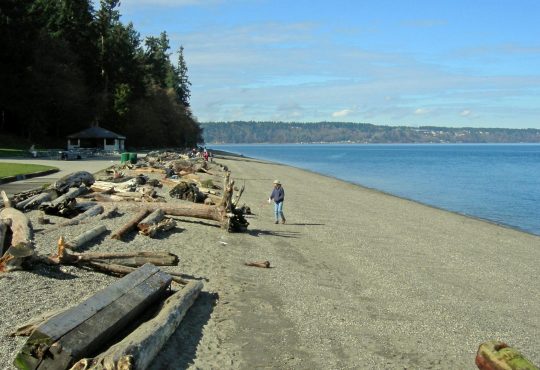The last issue of The Trail featured a story about Puget Sound being awarded a spot in The Princeton Review’s Guide to 322 Green Colleges, a huge honor for a school that puts a lot of effort into spreading ideas of sustainability and general environmental friendliness.
On paper, it’s very hard to argue with the commitment shown by the students, faculty and bigwigs in Jones to bolster the reputation of the University as a leader in campus sustainability, state- and nationwide.
The abundance of clubs and organizations devoted to sustainability, the environmental focus of our science department and the sheer number of visiting speakers on the subject attest to this progress and show that we at least deserve a seat at the table amongst the top environmentally friendly schools.
With all that being said, however, I don’t think it’s that radical to say that the school still has a long way to go before it can keep up in practice with this reputation that we have worked hard to cultivate and now wear on our chest like a medal.
A quick disclaimer: I have never claimed to be an expert in sustainability, and am writing from what I perceive as the “everyman’s perspective” on this. Here are the facts as seen from street level:
Students for a Sustainable Campus is one of the most active clubs in the school. Clusters of posters around the S.U.B. or in the stairways of academic buildings almost without fail contain at least one or two advertisements for weekly sustainability-related events, speakers, films or projects.
Last Monday alone, there was a free film screening of Cries in the Wild: Thuli Makama and the Dark Side of Conservation in Rausch, along with a guest lecture by Mel Galbraith on the ecological restoration of Tiritiri Matangi Island, New Zealand. Additionally, on Friday, Luis Vittor gave a lecture about the impact of mining in South America, which is both a social and ecological issue.
The Diner has publicized several steps that it has taken, even within the past few months, toward a system of sustainability, including the addition of a new disposal system in the dish room sink that allows less to be thrown away.
On Earth Day, the Diner eliminated almost all paper products in the name of saving paper and trees, which involved more “for here” dining options and less paper waste.
As Matt Anderson wrote in last week’s issue, the University offers 98 courses that focus on sustainability. Additionally, more than 300 classes in 32 of the 34 academic departments at least connect to ideas of sustainability.
There are plenty of factors working in the school’s favor in this regard, and we flaunt the gold stars we are given in recognition of them.
On the other hand, the one thing that the University of Puget Sound is more widely recognized for than our green image is the beauty of our campus. And let’s not kid ourselves—a lot of effort and resources are poured into keeping the campus in pristine shape.
It would be interesting to take a look at the school’s annual fuel consumption, as our diligent, hardworking grounds crew keeps the grass of every lawn cut neat and short.
How many thousands of gallons of water get pumped through sprinklers to keep the plants green and the flowers bright? How many “Average Joe” students participate in paper-free options in the S.U.B. when offered?
Even on the paper-free Earth Day, there were numerous complaints about a lack of paper cups for coffee or fountain drinks, and the deli couldn’t stop the use of paper because of the number of sandwiches ordered to go.
In reality, Puget Sound is a large institution that is responsible for well over 3000 students, faculty and staff; even when weighing the negative environmental tendencies, it is important to keep things in perspective.
We definitely rank farther ahead of many institutions in our attitude toward promoting sustainability in spite of the waste and consumption necessary to keep the system moving.
On the other hand, it’s also important to keep in mind the fact that Puget Sound can be named among the elite in a category that we spend a lot of funding and time counteracting. The University’s recent distinction thus invites reflection on how much progress can still be made in our culture in terms of sustainability.



